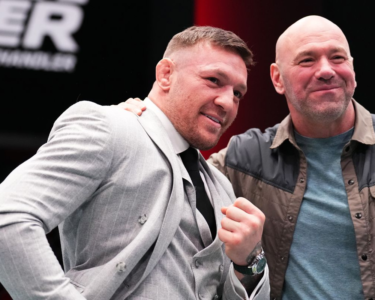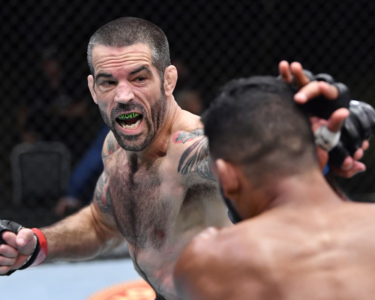Ronda Rousey acknowledges that every so often, when the UFC plans a major event, her name surfaces as a potential comeback contender. This was the case recently with UFC 300, which was touted as the promotion’s biggest event in history. Despite the swirling rumors, UFC President Dana White made it clear that Rousey was never considered for a return, as she is content with her retired life, focusing on raising her family.
Rousey last fought in the UFC nearly eight years ago, yet her name still pops up in conversations about the sport. While she appreciates being remembered, she insists there is no possibility of her stepping back into the octagon.

“Every few years, the same rumor resurfaces,” Rousey shared on the Insight podcast. “It’s nice to know people miss me, but it’s not going to happen. I’m no longer neurologically fit to compete at the highest level. I just can’t do it.”
Rousey explained that years of neurological injuries have taken a toll, and such injuries only worsen over time. While promoting her autobiography, she revealed that the numerous concussions she suffered, starting from her childhood, were the main reason for her decision to end her MMA career. She kept this information private while actively competing, and even after leaving the UFC, she refrained from discussing it publicly to protect her transition to WWE.
Eventually, the cumulative effects of her concussions made it impossible for Rousey to continue in full-time competition.
“When I entered MMA, I had already experienced dozens of concussions that I trained through without stopping,” Rousey said. “That meant dealing with concussion symptoms more often than not for about a decade. Once I started in MMA, I was playing a game of zero errors. But as time went on, even lighter hits began to hurt me more.”
She reached a point where even a simple jab could leave her dazed, showing concussion symptoms. It became unsafe for her to fight at the elite level any longer.
Rousey’s first professional loss occurred in 2015 when Holly Holm delivered a devastating head kick that knocked her out, costing Rousey the UFC bantamweight title. She took a year off to recover but returned 13 months later, only to lose to Amanda Nunes in just 48 seconds. After that, she left the octagon and never returned.
Reflecting on her career, Rousey admits that she should have retired after the loss to Holm, but she struggled with the idea of ending her career on that note.
“It was incredibly tough, and that’s why I took that first loss so hard,” Rousey said. “I knew I had reached my limit, but I was in denial. I tried to come back with more rest, a better weight cut, and less media obligations, focusing solely on fighting. I loved that moment when they say ‘go’ and the fight begins—nothing made more sense to me.”
Her concussion issues also plagued her during her time in WWE, leading Rousey to finally step away for good. With a growing family and her husband, Travis Browne, by her side, she realized that she had to prioritize her long-term health over her athletic career.
Rousey also embraced her role as a role model for young fighters, preferring to set an example for the next generation rather than become a cautionary tale.
“Men have been in combat sports longer, so they have more history with neurological issues from boxing and similar sports. Eventually, they reach their limit, and you see them getting knocked out more frequently. Later in life, they struggle with neurological problems,” Rousey explained. “I felt a responsibility to age gracefully as a representative of women’s MMA. If I ended up in a wheelchair, it would discourage parents from letting their daughters pursue the sport. You never know when you’ve taken one hit too many until it’s too late.”
Although she loved the support from her fans, the 37-year-old UFC Hall of Famer understands that such attention is fleeting. She needed to think about her future and her family.
That’s why Rousey is firmly committed to leaving fighting behind, no matter how often rumors of a comeback arise.
“People love to see you fight when you’re in the cage, but none of those people will be there for you later in life,” Rousey said. “You have to take care of yourself and your family first. To everyone else, you’re just temporary entertainment. In pro wrestling, you see people get addicted to the applause, unable to walk away even when it’s detrimental to them.”
“I had to recognize that my brain had reached its limit, and it had nothing to do with toughness. It’s just the reality of the situation.”





